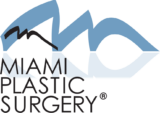It is estimated that approximately 4 million women in the United States and 10-15 million women worldwide have breast implants. Use of implants, primarily silicone gel filled and less commonly saline filled, continue to be the preferred surgical method for breast augmentation, as well as for breast reconstruction after mastectomy. The preponderance of scientific evidence has supported the safety of breast implants, however concerns, whether scientifically based or not, continue to be propagated. Such concerns lead to a moratorium being imposed on the use of silicone implants in 1992. After years of clinical trials, no causal relationship was found between implants and any disease process. The FDA declared that silicone implants should be considered reasonably safe devices and released the moratorium in 2006.
Enhanced Safety and Monitoring of Modern Silicone Breast Implants
This re-release of silicone implants involved more strict regulations and monitoring which have made breast implantation even safer over the past few decades. One new requirement was that the implants be filled with a more firm or cohesive type of silicone gel, compared with the more oily type of gel in older generation implants which could enter lymphatic vessels and travel to lymph nodes in the event of rupture. Another new recommendation was that all women with breast implants should undergo regular screening to confirm implant integrity. As safe as modern-day breast implants are, they still are not lifetime devices. Whether an individual has older generation (pre-2006) silicone implants or the latest generation devices, all implants should be screened for rupture every 2-3 years beginning 5-6 years after implantation to maintain optimal health and safety.
Understanding Implant Rupture: Causes and Factors Affecting Breast Implants
All breast implants, whether saline or silicone gel filled, have an outer shell made of several layers of a solid silicone elastomer. Rupture of implants occurs when that outer shell breaks. Factors including manufacturing defects, capsular contracture, trauma or excessive compression may contribute to implant rupture, however aging of the outer implant shell material is the most significant factor. Breast implants are constantly moving inside the body, leading to repeated folding of the implant shell, which eventually leads to thinning and cracking of the shell.
Recognizing and Understanding Breast Implant Ruptures: Saline vs. Silicone
Saline implant ruptures are usually recognized almost immediately. The leaking saline is harmlessly absorbed by the body. The implant completely deflates over a period of a few days, resulting in an obvious asymmetry. Ruptures of silicone implants are classified as either intracapsular (where the silicone gel is contained within the fibrous tissue capsule surrounding the implant) or extracapsular (where the capsule also tears, and the silicone gel leaks into surrounding breast tissue). Intracapsular ruptures are often “silent”, with no obvious symptoms, and may remain so for years without proper screening. Over time, tearing of the capsule previously containing the free silicone gel may occur, resulting in conversion to an extracapsular rupture. Extracapsular ruptures may be associated with symptoms of palpable breast lumps or masses, changes in breast shape, localized inflammation, enlarged lymph nodes (with older generation implants), and possibly systemic symptoms.
The Importance of Self-Awareness and Regular Screening for Breast Implants
Self-awareness and self-monitoring are the first steps in breast implant screening. Women should routinely perform breast self-examination and look out for any new pain or discomfort, lumps or swelling, and changes in size or shape. Regular physical exams with a healthcare provider are also essential. Finally, regular breast imaging plays a vital role in implant screening.
Imaging Options and Recommendations
Mammography is the standard imaging for breast cancer screening. Although it may detect some implant ruptures, it is not a preferred modality for implant screening. MRI is the gold standard for detecting silicone implant ruptures due to its high sensitivity and accuracy, however this modality is costly and often not approved by insurance carriers without initial ultrasound examination. Ultrasound is a less expensive and more widely available option that is also highly sensitive and effective in identifying implant rupture. Current FDA recommendations for breast implant screening are that women undergo ultrasound examination of their implants every 2-3 years, beginning 5-6 years after implantation. If ultrasound results are indeterminate, MRI can then be performed. It is important for women to recognize that ultrasound screening for breast implant integrity is not adequate screening for breast cancer. Mammography is required as the standard of care for cancer screening.
The Role of Informed Screening and Timely Intervention for Breast Implant Health
Based on decades of scientific evidence, women should remain highly confident in the safety of modern-day breast implants. That evidence shows us that after 10 years, more than 90% of those implants are still intact. We do know however, that sooner or later all implants will eventually fail.
The Importance of Proactive Screening and Intervention for Breast Implant Health
By staying properly informed and proactive in following recommended screening guidelines, individuals with breast implants can maintain peace of mind and confidence that they can have healthy lives and long-term satisfaction with their surgical outcomes. By ensuring timely intervention, regular screening will help detect silent ruptures early and minimize complications. If your screening shows evidence of rupture, this is not an emergency, but do not neglect to act. Consult with a board-certified plastic surgeon who will discuss your options and schedule an elective implant removal or exchange.
Why Choose Miami Plastic Surgery® for Breast Implant Screenings?
Now is the time to prioritize your health and aesthetic goals. At Miami Plastic Surgery® and our dedicated care team are among the top specialists for breast implant screenings in the Miami area.

